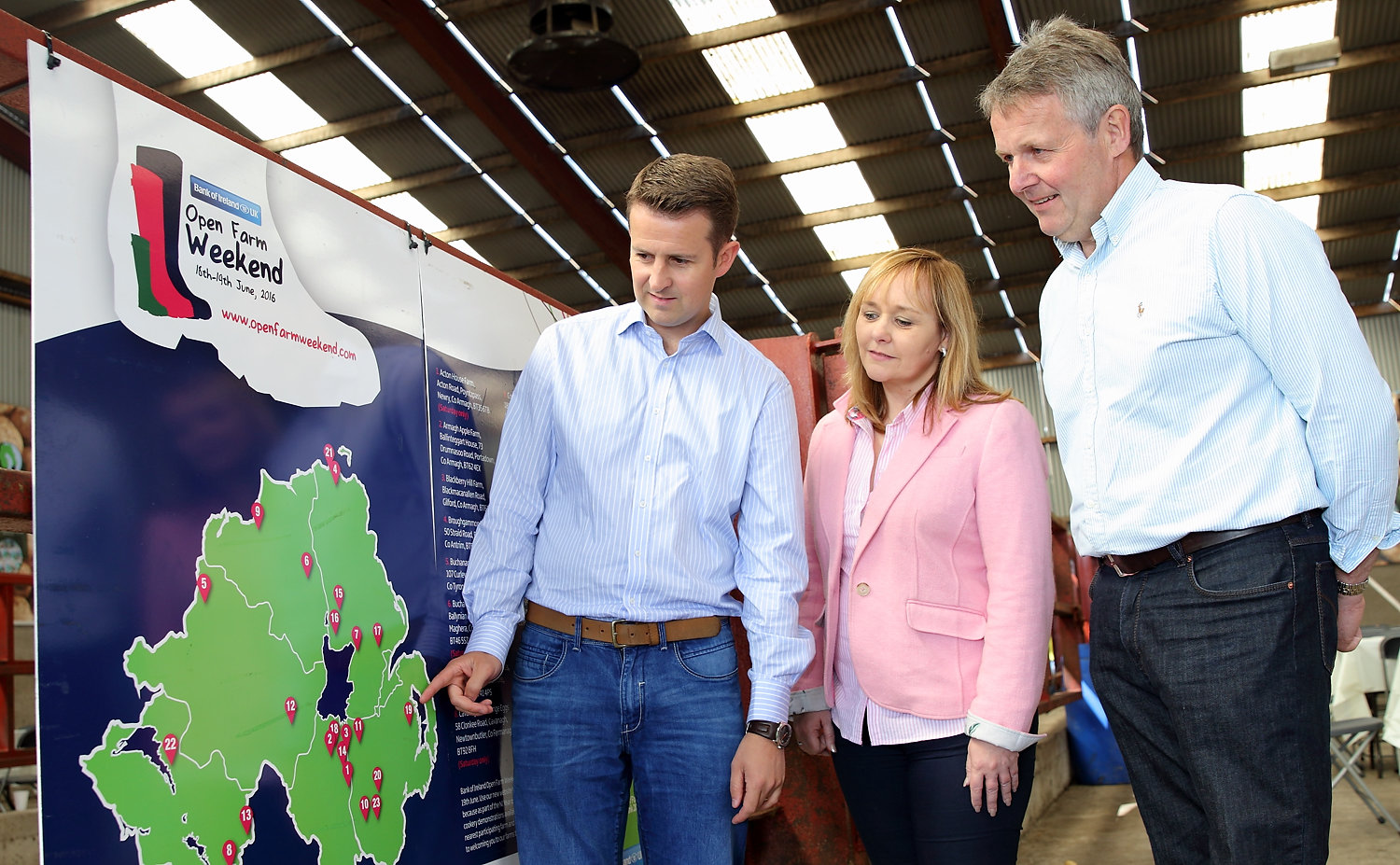
Northern Ireland's Agriculture Minister Michelle McIlveen has said that delivering a profitable farming industry is a key objective for her during her time in office.
Speaking to Ulster Farmers Union Winter Programme Meeting, Miss McIlveen said her focus is on improving the economic performance of the industry, supporting farmers through challenging times and ensuring that vital financial support and trade links are maintained during and after UK’s exit from the European Union.
The Minister said farmers "are at the heart" of the agri-food industry which has an annual turnover of almost £5billion and 20,000 employees.
"I believe there is significant potential for further expansion in this sector; and I aim to bring a sharper focus to government’s role in collaborating with the industry to support growth," Miss McIlveen said.
"Last month, I announced the launch of the preparation stage for the capital element of the new Farm Business Improvement Scheme (FBIS).
"I believe this will help to grow the sector, by enabling farmers to invest in the next generation of their farms."
'Very challenging market conditions'
In a wide-ranging speech to the Fermanagh meeting on Thursday evening, the Minister told delegates that her department will also help farmers when times are challenging.

Miss McIlveen said: "I am acutely aware of the very challenging market conditions farmers have been facing.
"Whilst the vast majority of the factors contributing to the continuing low prices are outside DAERA’s control, my Department will continue to do all that it can to assist farmers cope with future market volatility.
"In less than two weeks, we will be issuing a 70% advance to Basic and Greening Payments to eligible farm businesses and we are also committed to paying at least 95% of eligible Basic Payment Scheme applicants in December.
"Since my appointment, I have pressed DEFRA Ministers and the European Commission on the need for urgent and meaningful support for hard pressed farmers, particularly those in the dairy sector.
"I was pleased when Commissioner Hogan announced a package of measures aimed at addressing the financial difficulties.
"There are two key elements of the package – the provision for EU Milk Production Reduction Aid and Exceptional Adjustment Aid.
"As a result of my lobbying, I successfully made the case for a significant share of the UK’s €30.2million allocation of Exceptional Adjustment Aid."
'Early boost following the referendum result'
Addressing the issue of the UK exit from the European Union, Miss McIlveen went on to say the farming industry has enjoyed an early boost following the referendum result.
"Since June, we have seen a significant depreciation on the value of sterling which has had a positive impact on the value of basic farm payments," Miss McIlveen said.
"It is estimated that the total net value of 2016 Direct Payment to local farmers will be boosted by £39million compared to last year.
"The exchange rate is also beneficial to exporting companies. As a result, there has been an improvement on the price of sheep, cattle and milk for our local farmers.
"Northern Ireland goods are more competitive in export markets and the costs of food products coming into the UK are more expensive compared to locally produced products.
"We are also seeing more visitors and shoppers coming to Northern Ireland and in particular our rural towns and villages."
'Vital support'
Miss McIlveen said a significant amount of work has been undertaken on Brexit, to establish the necessary governance arrangements and the scoping out the programme of work that lies ahead.
However, she went on to emphasise: "First and foremost, my priority is to preserve vital financial support for the farming, and fisheries, sectors.
"Secondly, I am acutely aware of the importance of the agri-food sector to our economy and employment so I want an agricultural policy framework that underpins its sustainable growth and competitiveness.
"Thirdly, we must ensure our continued ability to trade effectively and profitability both inwardly and outwardly," Miss McIlveen concluded.
